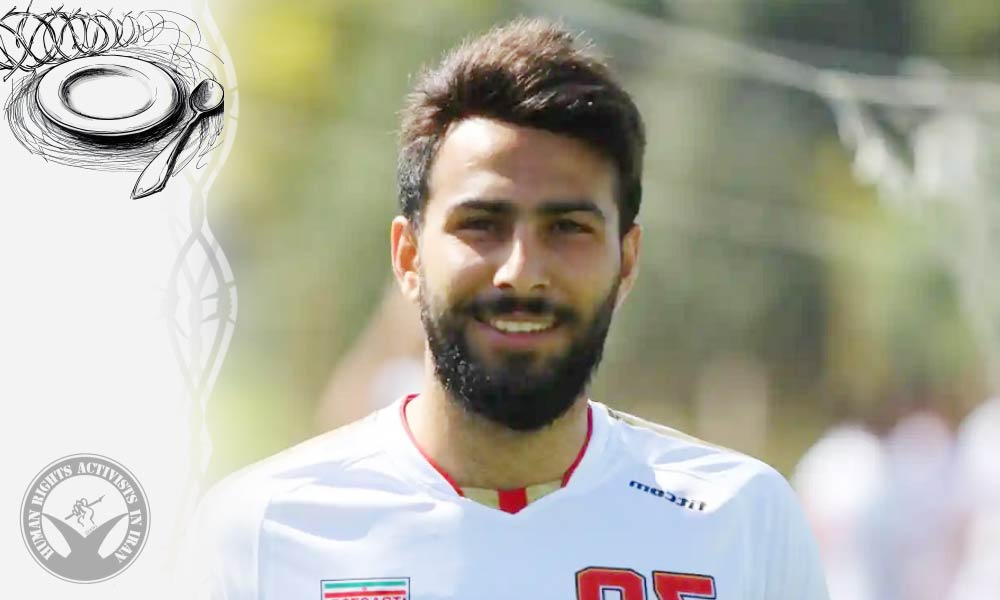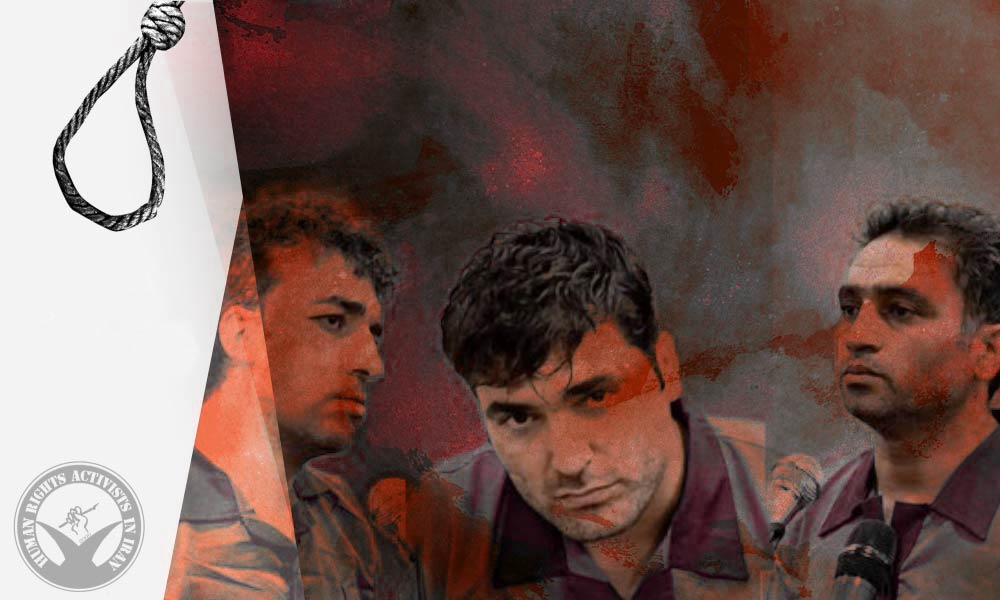HRANA, Human Rights Activists News Agency – Over the past month, the Iranian security and judicial institutions have intensified their crackdown on the families of victims of the 2022 nationwide protests.
They have employed various tactics, including summoning, arresting, prosecuting, and discouraging them from holding commemoration ceremonies for their deceased loved ones. Additionally, reports indicate instances of grave desecration.
Arrests and Judicial Interference
On April 20, 2023, Hossein and Mehdi Kazemi, brothers of Majid Kazemi, one of three executed convicts in the “Isfahan House” case, were reportedly arrested and subjected to physical assault at their home. Following their arrest, Majid Kazemi’s sister, Somayeh Kazemi, was also detained while inquiring about her brothers’ well-being.
Somayeh Kazemi was released on May 22, while Hossein and Mehdi Kazemi were granted bail and released on June 18.
Furthermore, on June 16, relatives of teenager Abolfazl Adinehzadeh, who was killed during the protests, were arrested in Mashhad. The arrested individuals included Abolfazl’s mother, Goldasteh Hosseini Jahanabad, his father, Ali Adienzadeh, his sister, Marzieh Adinezadeh, and his uncles, Reza and Musa Adienzadeh, who faced violent arrests. Subsequently, Ali and Reza Adinezadeh were transferred to Shirvan Prison, while Marzieh and her mother were taken to Bojnurd Prison. They were later released on bail between June 18 and June 21.
Abolfazl Adinezadeh was fatally shot by regime forces during the 2022 nationwide protests in Mashhad, reportedly sustaining 25 bullets to his chest and abdomen.
In Saqqez, several people were arrested on June 9 following a protest rally at the burial site of another teenage victim, Danial Pabandi. Among those detained were the families of several victims and the drivers of two minibuses transporting the families to the cemetery. Some of the detainees were released on bail the day after their arrest.
On June 17, 2023, Sajad Pirfalak, the uncle of Kian Pirfalak, a minor who tragically lost his life during the 2022 nationwide protests, was apprehended by security forces in Izeh. He was subsequently taken to the detention facility of the Ministry of Intelligence.
The following day, Kian Pirfalak’s mother, Mahmonir Molaie-Rad, was summoned to the Ministry of Intelligence office in Izeh.
On April 11, 2023, security forces arrested Foad Choobin in Izeh. Foad’s nephew, Artin Rahmani, was killed by regime forces during the 2022 nationwide protests in Izeh.
Grave Desecrations and Disruption of Memorial Ceremonies
Reports have surfaced concerning the desecration of several graves belonging to protest victims. Within the past month, at least four graves, including those of Majid Kazemi, Mohsen Shakari, and Sepher Azami, were destroyed or set on fire.
Ashkan Amini, the brother of Mahsa Amini, shared news of the desecration of his sister’s burial place for the second time. The Saqqez Municipality has allegedly planned to carry out reconstruction at the cemetery where Mahsa Amini is buried, seemingly as an attempt to prevent gatherings and commemoration ceremonies. In protest against these malicious actions, traders and shopkeepers in Saqqez went on a general strike on June 13, 2023, closing their shops.
Majid Kazemi’s family was reportedly prevented from holding his funeral, with heavy security presence around his grave. Kazemi’s grave was set on fire on June 7th, the day his family had planned to hold a memorial service.
Similarly, the family of Kian Pirfalek faced an intense security presence and threats during a memorial ceremony at the burial place.
The families of Mohsen Shekari and Sepehr Azami, two victims of the 2022 nationwide protests, have also reported the desecration of their loved one grave.
Majid Kazemi’s family faced impediments when attempting to hold his funeral, with heavy security presence surrounding his grave. On June 7, the day of the planned memorial service, Kazemi’s grave was set on fire.
Likewise, Kian Pirfalak’s family encountered intense security presence and threats during a memorial ceremony at his burial site.
The families of Masoud Shekari and Sepehr Azami, two victims of the 2022 nationwide protests, have also reported the desecration of their loved ones’ graves.
It is important to note that the Iranian regime and its security forces have a history of desecrating dissidents’ burial places.
Violence Against Protestors’ Families
During a ceremony held on June 11, 2023, to commemorate Kian Pirfalak’s birthday, police fatally shot a citizen. The victim, Pouya Molaie-Rad, approximately 20 years old, was the cousin of Kian Pirfalak’s mother. Multiple sources have reported multiple arrests made by the police during the ceremony.
IRNA confirmed that Molaie-Rad succumbed to his injuries while receiving treatment at the hospital.
Fars News Agency, associated with security institutions, claimed that a police officer named Mohammad Ghanbari also lost his life, allegedly after being struck by a car.
Background on the 2022 Nationwide Protests
The arrest of Mahsa Amini by Tehran Morality Police for her improper hejab and her suspicious death on September 16 sparked protests sweeping across Iran. During the nationwide protests, about 19600 people, including journalists, artists, lawyers, teachers, students and civil rights activists, were arrested.
For further inquiries please contact Skylar Thompson, the Director of Global Advocacy and Accountability at Human Rights Activists in Iran (HRA) at [email protected]








